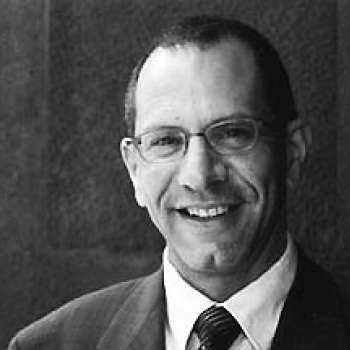

Ted Magder
Special Advisor for Policy, Strategy, and Innovation; Associate Professor of Media, Culture, and Communication
Media, Culture, and Communication
Ted Magder is the Special Advisor for Strategy, Innovation and Policy and an associate professor in the Department of Media, Culture and Communication in the Steinhardt School of Culture, Education and Human Development.
From 2015 to 2019, Magder served as the school's Vice Dean for Academic Affairs overseeing the full academic life cycle of undergraduate and graduate programs at the Washington Square campus in New York City, NYU Global and study abroad campuses, as well as online and hybrid programs.
In 2019, he embarked on a special project to support the advancement of teaching and learning with the school and across the university.
Magder has been honored with teaching awards from the Steinhardt School of Culture, Education and Human Development and York University in Toronto, Canada. In 2012 he was one of six recipients of NYU's University Distinguished Teaching Award.
Magder's scholarship focuses on the legal and regulatory regimes that influence the flow of both media and culture across borders.
Past publications have examined the origins of international agreements and global media, the UNESCO Convention on the Protection and Promotion of Diversity in Cultural Expressions, online gambling and the World Trade Organization, and the principles of world communication. He is also the author of Canada’s Hollywood: Feature Films and the Canadian State, and Franchising the Candy Store; Split-Run Magazines and a New International Regime for Trade in Culture.
Magder was a visiting scholar at the University of Amsterdam’s School of Communication Research in 2003. In 2001, he was the Malim Harding Visiting Professor in the Department of Political Science at the University of Toronto. Magder was the special academic advisor to the UN World Television Conference in 1999 and 2000.
He received his BA from the University of Toronto, his MA from Carleton University in Ottawa and his PhD from the Department of Political Science at York University in Toronto. In 1988, he was a postdoctoral fellow at the Centre for Communication and Information Studies at the Polytechnic of Central London (now the University of Westminster).
Selected Publications
- The Origins of International Agreements and Global Media: The Post, the Telegraph, and Wireless Communication Before World War I. Robin Mansell and Marc Raboy, eds. The Handbook of Global Media and Communication Policy. London: Blackwell Publishing (23 - 39), 2011
- Television 2.0: The Business of American TV in Transition. in Laurie Ouellette and Susan Murray, eds. Reality TV: Remaking Television Culture. 2nd Edition. New York: NYU Press (141 - 65), 2008
- Gambling, The WTO and Public Morals: a Short Review of Antigua vs. the United States.” Television and New Media, Vol. X, no. 1, February (52 – 67), 2006
- "International Agreements and the Principles of World Communication." James Curran and David Morley, eds. Media and Cultural Theory (London: Routledge) 2006
- International Agreements and the Principles of World Communication. James Curran and David Morley, eds. Media and Cultural Theory. London: Routledge (164 – 76), 2005
- "The End of TV 101: Reality Television, Formats and the New Business of TV." Laurie Ouellette and Susan Murray, eds. Reality TV: Remaking Television Culture (New York: NYU Press) 2004
